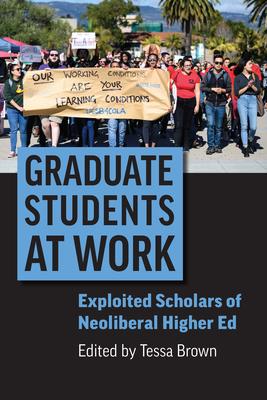Graduate Students at Work highlights the expertise and experiences of graduate students to demonstrate what graduate study entails, what it makes possible, and what it constrains in the context of corporatizing higher education. This collection of full-length research articles and short personal essays illustrates graduate students’ experiences, organizing tactics, and strategies for staying in or moving out of the academy.
Speaking from personal experience as well as reporting research findings, the contributors of Graduate Students at Work illustrate the significant expertise that graduate students are asked to enact in their time-intensive jobs as teachers, researchers, and administrators, even as they are kept in poverty wages for the decade or so it takes to move through a master’s and doctoral program into the promised land of a tenure-track job. While these students are the leaders of the academic labor movement, they have yet to receive as much attention as adjunct instructors and other laborers in the university system. Though they experience harassment, discrimination, and exploitation, graduate students rarely have access to labor protections because they are often misclassified as students, not employees--a key rhetorical strategy universities use to fight graduate student organizing.
These essays and articles also draw insightful connections between the labor conditions of graduate student workers and other workers navigating poverty wages, labor migration, limited benefits, and harassment and discrimination around lines of race, gender, ability, and citizenship--the most important connection perhaps being the possibility for organization and unionization to fight for better working conditions for all.








